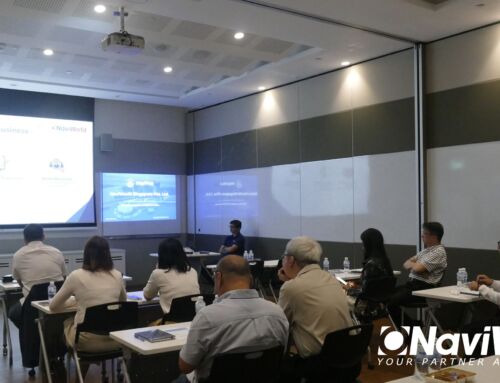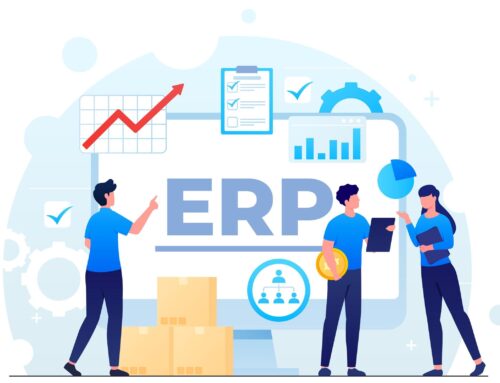10 Keys to Successful ERP Implementation
Introduction
There are many horror stories about Enterprise Resource Planning (ERP) Project failures. Just google for keywords “ERP Failure,” and you will find articles such as “16 famous ERP disasters, dustups and disappointments” and more. According to Gartner, 75% of ERP projects fail. Many in Singapore may recall the mess in their electrical bill when their electrical supplier implemented their ERP many years ago. It took months to straighten it out.
Yet, there are also studies such as “ERP Implementations Are More Successful Than You Thought.” That study argued that most ERP projects succeeded.
And it is a fact that many companies in Singapore had benefitted from the implementation of Enterprise Resource Planning solutions in the last 30 years.
So, why are there such contrasting opinions? What are the 10 Keys to Successful ERP Implementation?
NaviWorld Singapore Experience
NaviWorld Singapore has been involved in recovering troubled ERP projects in Singapore since we started in 2013. Ironically, we are becoming well known for our ability to recover troubled ERP projects.11
There are often consistent reasons for ERP project failures. But, it is interesting to see some poorly implemented ERP projects that users did not think that it failed. Examples of this include cases where finance persons manually calculate and passes journals into their accounting record that should be calculated by the ERP. Instead of having the information integrated into the financial account, they manually created management reports in Excel outside the ERP.
Some companies repeating the same mistakes from one failed project to another.
It is sad to see some companies accepting the troubles that they faced in the use of their ERP as normal and acceptable. It should hardly be the case, as most of those issues can be rectified and improved upon.
We had proven this to many of our customers. So, perhaps, the differences in expectation of what constitutes an ERP failure is the reason for these contrasting opinions. Sometimes, it may be the ego of the team members who refused to admit defeat.
It is even more depressing when I saw ERP implementation partners and consultants treating these troubles as usual.
Reasons for ERP Failure
I remembered that in 2014, I was consolidating ERP projects that I encountered. These projects were planned to go live by or before 1 Sep 2014, and there were a total of 8 such projects:
- Six projects did not go live on time with many of them already more than one year since started
- One of them somewhat went-live (partially live)
- Only one Project went live as planned
The first seven projects were implemented by other implementation partners and not by NaviWorld Singapore. Only the project implemented by NaviWorld went live as scheduled. Project delays do happen, but they should not be the majority.
So, what are the common reasons that ERP projects fail? I can often see the following reasons:
- Lack of Top Management Involvement
- Lack of Participation from Key Users
- Poor or Lack of Project Management
- Heavy and Often Unnecessary Customization
- Poor Consulting Quality
- Wrong ERP Product
You may notice that majority of these reasons are human-related and will lead to my summary of the 10 Keys to Successful ERP Implementation. Moreover, even the last two reasons, which are due to poor evaluation and selection, are often also human-related.
So, “PEOPLE IS THE KEY TO SUCCESSFUL ERP IMPLEMENTATION.”
10 Keys to Successful ERP Implementation
Let’s look at the 10 Keys for successful ERP implementation.
1. ERP is a Business Process Project
The common root that leads to all the issues is to treat ERP as an IT Project. So, since it is technologies, better leave it to the IT.
It is essential to recognize that ERP is a “Business Process Project” that has an impact on everybody’s work. You do not need to be an expert in technologies or IT, but you need to know your business process well.
By the way, you may like to know that very few IT persons have a sufficient understanding of ERP. They often specialize in IT infrastructure and non-ERP applications.
2. Top Management Involvement
In an ERP Project that involved many parties in the company of different stake-holders, conflict of interests often arises. It is essential to realize that the ERP project should ultimately meet the overall business objectives and in line with the top management expectation.
The top management has a crucial role in ERP projects. Often, senior management needs to make tough decisions. And the stake is high if the project fails.
In several trouble projects that I encountered, I did not see involvement or minimal involvement of the top management in the evaluation and implementation.
When top management was not involved in the interaction with the potential vendors, they often decide base on the initial price. They will not be unable to appreciate the intangible assessment from their staff. The danger came when some vendors adopt the strategy to go low in the initial proposal and use customization to recover the lost initial revenue. Often, this is an easier way to sell ERP products and services.
3. Involve Key Users Early
Form Evaluation Committee and Steering Committee. Appoint an Internal Project Manager. Get the key users of each department to involve in the evaluation and implementation.
I came across projects that were mainly a one-person show—one person doing everything and trying to make all decisions. And, the other people in the company were often trying to prove that his or her work and decisions were not correct. Without involving key users earlier in project evaluation usually is a sure formula for disaster.
4. Define Problems or Issues
Be clear of what problems or issues that you are trying to solve with your ERP project. Do not start the evaluation of implementation until you know what you are trying to solve.
These identified problems or issues will help to keep the evaluation and implementation on a consistent course.
5. Clear Tangible Targets
Once you have identified the problems and issues, set clear and tangible targets for your project, these processes will help you to compare the effectiveness of your ERP Project.
For companies that plan to apply for a government grant to support the project, this is one of the critical requirements to submit to the authority.
There must be ROI for your project, and from the ROI, you can better decide the budget that you should allocate for the project.
6. Evaluation – Design Demo Flows
Vendors are often very good at presenting the parts of their solutions that will impress you. Therefore, it is difficult for untrained users to differentiate each product base on the vendor’s preferred demo flow.
Some companies tried to design detailed evaluation criteria. But it is not easy for untrained users. Often, it was skewed towards certain ERP brands if the requirements were prepared by someone who favored a particular brand.
Pick 2 to 3 keys business flow with some sample data and ask all the vendors to demo base on the demo flow. The demo flow will provide a better real-life usage experience that users can better relate to and evaluate.
7. Never Accept a Five Pages Proposal
Often, I see a proposal from vendors which consists of mostly marketing information with less than five pages that are directly related to the project. I have seen projects that went live with all users set as “SuperUser” security rights. Everyone has access to all parts of the system include sensitive finance information. Some vendors did not include security setting training so to keep the initial project cost low.
I have come across ERP projects that went-live without financial statements. The vendor demanded additional costs to configure these financial statements. I wonder how they carried out the User Acceptance Test (UAT) without the financial statement to verify the settings.
I had also seen a few projects in which the vendor did not include financial statement training to keep the man-days low. Then recommend a separate report tool to the customer for designing their financial statement.
Never accept an ERP Project Proposal that is lack of details.
It is crucial to have all the key agreements documented in proposals or emails. Do not just take the salesperson’s word. Many vendors may not have internal handover between salespeople and implementation consultants. So, it is better to have all these understandings put in writing.
8. Understand the Implementation
When you have done your evaluation of the software base on your demo flow, you should be sure that the software selected can at least meet 80% of your needs and the remaining to be handled through work-around or some minimum customization.
For ERP Projects, the key is in the implementation and not just the software.
Ask detailed questions to understand how the vendors are going to conduct the implementation, why they recommend implementing it in specific ways. Also, compare the implementation strategy and methodology of the different vendors to understand their pros and cons.
Some will suggest seeing the reference customers of their shortlisted vendors. Unfortunately, all vendors have their supporting customers, even if their projects may not be well implemented.
Ask detailed questions to the reference customers, especially about what they like, dislikes, challenges faced, how they overcome the challenges, how the consultants and project manager handled their project, what they will do differently.
Remember, knowledgeable customers, select knowledgeable vendors.
9. Project Management
It is disheartening to know of ERP vendors and consultants who do not see the importance of Project Management. It is perhaps the most critical work to get the project live on-time and within budget. Some people feel that the ERP vendor should reduce project management, and this cost is unnecessary. Others see project management as project coordination.
Project Management is more than those. You may see the article on “What is Project Management?” from the Project Management Institute for a full definition of project management. It is a professional work that, for some reason, often neglected.
I do not believe that a consultant can also double as the project manager, but often this is done by ERP vendor to save costs.
The lack of professional project management is one of the most common reasons that cause the project to overrun the schedule and cost. That’s why this is one of the 10 Keys to Successful ERP Implementation.
10. Minimize or Delay Customization
You do not need to be very knowledgeable to come out with ideas to customize your ERP system. And you need not be proud if you have many customization ideas for your ERP projects. Moreover, if you need to customize your ERP extensively, you have probably chosen the wrong ERP or the ERP Vendor. The best alternative is that you are in a unique industry that standard ERP cannot meet most of your requirements.
Customization and additional programming work are the sources of cost, schedule overrun, an unstable system with bugs, and costly long term maintenance nightmares.
Some ERP vendors are very proud of their customization. Trust me; it is not difficult to customize the software. It takes a different level of consultant competency to produce stable, flexible, and easy to maintain customizations. Many people can customize, but only the best programmers can debug problematic programs. Over the years, we have often involved in recovering trouble ERP projects that were done by incompetent vendors and consultants.
A good ERP functional consultant will spend time and effort to utilize the standard ERP configurations and functionalities to meet the customer’s requirements. That’s why it takes more man-days to come up with the right solution. An excellent functional consultant often has to brainstorm with the consulting team for a more appropriate solution and test the configuration before presenting them to the users.
You can learn more from my articles on “Why You Should Minimize Customization in ERP Projects“.
Conclusion
There are more than 10 Keys for Successful ERP Implementation. And many articles look at this issue from slightly different viewpoints.
This article is a summary of my various studies, talks, and more than 20 years of observations in the ERP industry.
Remember, knowledgeable customers, select knowledgeable vendors.
You may like to read my article on “How to Select ERP for SME” for advice in ERP selection.
If you like to discuss further and understand more about ERP implementation, please do not hesitate to contact me.



